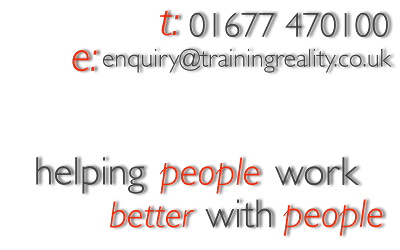Please press (at least!) one of these.
It costs you nothing, and (possibly) helps us spread the word!
Well rounded decision making
Tuesday, 19 July 2011
Every coin has two sides. Or, arguably, three, if you include the edge or rim. Someone has even commented online that, if you "remove" the edge and twist it, you could create a Mobius strip (see notes at the bottom if you're so inclined!), so you'd have an infinite number. And, of course, there are coins such as the UK 50p and 20p which could be defined as having nine sides...
What interests me about this is that most people would shrug their shoulders about this and say "so what", or words to that effect. Different opinions about something like this exist, and for most people, they're not worth worrying about. Equally, it's relatively easy to see, and accept, all sides of the argument.
However, when the discussion turns to something that is important to us, things can be rather different. If we want to be seen as decisive, if we have a long-held belief, or if we simply want to get our own way, seeing, and valuing different opinions can be rather trickier. This was beautifully demonstrated in the most recent episode of The Apprentice, in which there was a discussion about whether the image to associate with a Mexican restaurant should be some peppers, or a sombrero.
Looking in from the outside, it really, really wouldn't have made a jot of difference to the outcome of the task, and yet it (amongst other things) became a sticking point between two individuals who simply couldn't, or didn't want to, see the other person's point of view. Goodness knows what would have happened if there had been a third person with an equally strongly held idea in the room.
This sort of thing happens a lot. People hold on to their ideas as precious things, and protect them in case others' ideas damage them.
As an outsider, it's pretty easy to see this happening, and it's pretty easy to take a logical, rational approach to the situation as well. However, from within the situation, it's just as easy to get bogged down, trapped and cornered into defending something, fearful of showing weakness.
One useful step to take is to imagine the richness that can be developed from exposing yourself to different points of view. Asking "what if" can allow you to explore alternate possibilities without discarding your own idea, and, by enjoying that process, you may then want to adapt or change your original position. Another, slightly tougher, one is to ask "so what" with regard to your idea - if no-one else goes with it (regardless of whether it's right or wrong, what is the genuine, direct impact? Even tougher, but even more useful, is to imagine that you are actually wrong - again, look at the impact.
Taking the pepper/sombrero example:
- "What if" - what if we were to run with the sombrero idea rather than the pepper one? What would the impact be?
- "So what" - if we completely abandoned the pepper idea, what would the impact be?
- "I'm wrong" - what is it like to support the sombrero idea instead? Is it a tenable position to hold?
It's probably pretty clear that I view this as a pretty trivial decision. But the same process holds for more important and more difficult decisions, and, because of their importance, it is more vital than ever to let go of initial prejudices and assumptions, and explore, honestly, all the alternatives.
Decision making in business is far too important to take place in a vacuum; the more you open yourself up to alternative possibilities, and weigh them up fairly, the better your decision making will be.
Please press (at least!) one of these.
It costs you nothing, and (possibly) helps us spread the word!



